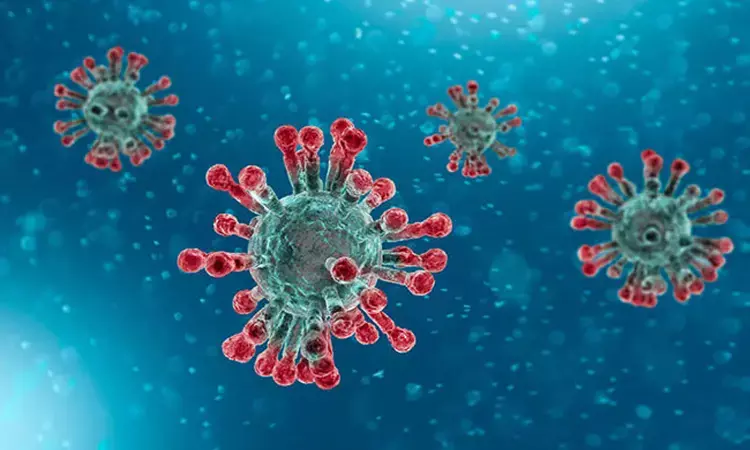- Home
- Medical news & Guidelines
- Anesthesiology
- Cardiology and CTVS
- Critical Care
- Dentistry
- Dermatology
- Diabetes and Endocrinology
- ENT
- Gastroenterology
- Medicine
- Nephrology
- Neurology
- Obstretics-Gynaecology
- Oncology
- Ophthalmology
- Orthopaedics
- Pediatrics-Neonatology
- Psychiatry
- Pulmonology
- Radiology
- Surgery
- Urology
- Laboratory Medicine
- Diet
- Nursing
- Paramedical
- Physiotherapy
- Health news
- Fact Check
- Bone Health Fact Check
- Brain Health Fact Check
- Cancer Related Fact Check
- Child Care Fact Check
- Dental and oral health fact check
- Diabetes and metabolic health fact check
- Diet and Nutrition Fact Check
- Eye and ENT Care Fact Check
- Fitness fact check
- Gut health fact check
- Heart health fact check
- Kidney health fact check
- Medical education fact check
- Men's health fact check
- Respiratory fact check
- Skin and hair care fact check
- Vaccine and Immunization fact check
- Women's health fact check
- AYUSH
- State News
- Andaman and Nicobar Islands
- Andhra Pradesh
- Arunachal Pradesh
- Assam
- Bihar
- Chandigarh
- Chattisgarh
- Dadra and Nagar Haveli
- Daman and Diu
- Delhi
- Goa
- Gujarat
- Haryana
- Himachal Pradesh
- Jammu & Kashmir
- Jharkhand
- Karnataka
- Kerala
- Ladakh
- Lakshadweep
- Madhya Pradesh
- Maharashtra
- Manipur
- Meghalaya
- Mizoram
- Nagaland
- Odisha
- Puducherry
- Punjab
- Rajasthan
- Sikkim
- Tamil Nadu
- Telangana
- Tripura
- Uttar Pradesh
- Uttrakhand
- West Bengal
- Medical Education
- Industry
Coronavirus has not suddenly become less pathogenic: WHO

"It may not be that the virus itself is becoming less potent: it may be that we are, as a community, successfully reducing the number, intensity and frequency of exposure to that virus.
Geneva - The World Health Organization stressed Monday that the new coronavirus has not suddenly become less pathogenic, following claims by a leading Italian doctor that COVID-19 had lost some of its potency.
"That is not the case at all," WHO emergencies director Michael Ryan told a virtual press briefing.
Read Also: COVID 19 vaccine could come within 1 year: WHO
The claims by Alberto Zangrillo sparked a furore on Monday, with the Italian government urging caution.
"In reality, the virus clinically no longer exists in Italy," said Zangrillo, head of the San Raffaele Hospital in Milan, the capital of the northern Lombardy region, which has been the worst-hit by the pandemic.
"The swabs performed over the past 10 days have showed a viral load that is absolutely infinitesimal in quantitative terms compared to those carried out a month or two months ago," he told RAI television on Sunday.
That prompted cries of disbelief from other experts, who said Zangrillo may have mistaken a higher detection rate of asymptomatic cases for diminished potency of the virus.
- Still 'killer virus' - The WHO's Ryan, an expert epidemiologist, spelled out the dangers in believing that the virus is becoming less potent.
"New viruses in human populations can do one of two things: they can evolve and become less pathogenic, or sometimes they can become even more pathogenic," he explained.
Ryan said it was not in the interests of the virus to kill everyone it infected because it could survive better if it can keep transmitting between people.
"We need to be careful: this is still a killer virus," he said.
"We need to be exceptionally careful not to create a sense that, all of a sudden, the virus, by its own volition, has now decided to be less pathogenic. That is not the case at all."
- 'We're doing better' - Ryan detailed a possible explanation for what Zangrillo claimed he had observed.
"It may, in some ways, have something to do with the dose and length of intensity of exposure," the Irishman explained.
"In other words, the absolute amount of virus you're exposed to can determine how severe, ultimately, your illness can be.
"That has been proven with other diseases; we don't know that that's the case for COVID-19.
"It may not be that the virus itself is becoming less potent: it may be that we are, as a community, successfully reducing the number, intensity and frequency of exposure to that virus.
"On the face of it, the virus then looks weaker -- but it may be weaker because we're doing better, not because the virus is weakening."
Medical Dialogues Bureau consists of a team of passionate medical/scientific writers, led by doctors and healthcare researchers. Our team efforts to bring you updated and timely news about the important happenings of the medical and healthcare sector. Our editorial team can be reached at editorial@medicaldialogues.in.


